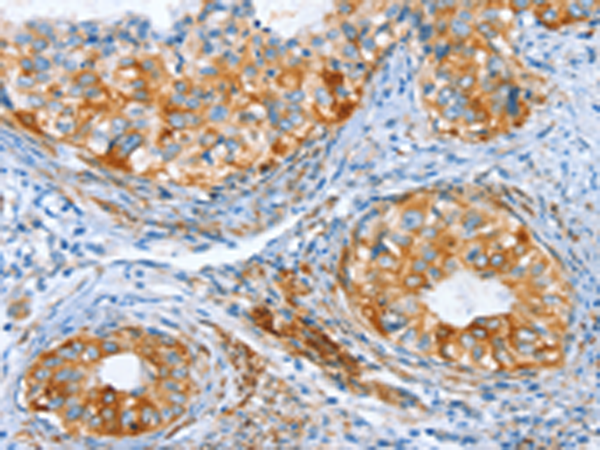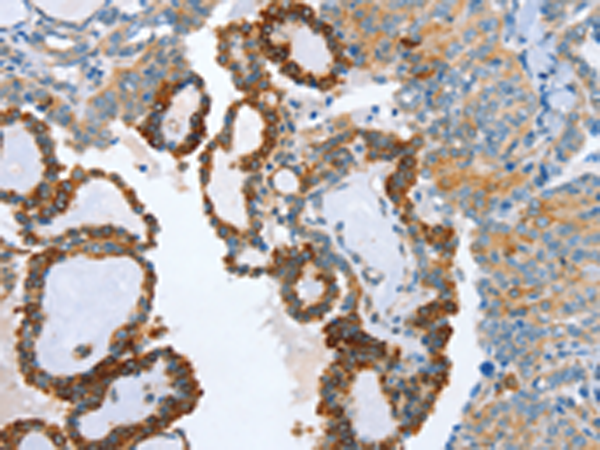

| WB | 咨询技术 | Human,Mouse,Rat |
| IF | 咨询技术 | Human,Mouse,Rat |
| IHC | 1/100-1/300 | Human,Mouse,Rat |
| ICC | 技术咨询 | Human,Mouse,Rat |
| FCM | 咨询技术 | Human,Mouse,Rat |
| Elisa | 1/2000-1/10000 | Human,Mouse,Rat |
| Aliases | ARA9; XAP2; XAP-2; FKBP16; FKBP37; SMTPHN |
| Host/Isotype | Rabbit IgG |
| Antibody Type | Primary antibody |
| Storage | Store at 4°C short term. Aliquot and store at -20°C long term. Avoid freeze/thaw cycles. |
| Species Reactivity | Human, Mouse, Rat |
| Immunogen | Synthetic peptide of human AIP |
| Formulation | Purified antibody in PBS with 0.05% sodium azide and 50% glycerol. |
+ +
以下是关于AIP(自身免疫性胰腺炎)相关抗体的3篇参考文献及其摘要概述:
1. **文献名称**:*Autoimmune Pancreatitis: Diagnostic Criteria and Molecular Mechanisms*
**作者**:Kamisawa T, Okazaki K
**摘要**:探讨自身免疫性胰腺炎的诊断标准,重点分析IgG4抗体的作用及组织病理学特征,提出IgG4阳性浆细胞浸润是AIP的重要标志,并与血清IgG4水平升高相关。
2. **文献名称**:*Identification of Autoantibodies Against Pancreatic Antigens in Patients with Autoimmune Pancreatitis*
**作者**:Okazaki K, Uchida K, Ohana M
**摘要**:研究AIP患者中特异性自身抗体的存在,发现抗碳酸酐酶II(anti-CA II)和抗乳铁蛋白(anti-LF)抗体在疾病中显著表达,提示其可能参与免疫病理机制。
3. **文献名称**:*Recommendations for the Nomenclature of IgG4-Related Disease*
**作者**:Stone JH, Khosroshahi A, Deshpande V
**摘要**:提出IgG4相关疾病的统一命名标准,涵盖AIP作为其典型表现之一,总结IgG4抗体在全身性炎症和纤维化中的作用,强调其在诊断中的重要性。
4. **文献名称**:*International Consensus Diagnostic Criteria for Autoimmune Pancreatitis*
**作者**:Shimosegawa T, Chari ST, Frulloni L
**摘要**:国际共识指南明确AIP的诊断标准,指出血清IgG4升高是核心指标之一,并讨论其他辅助抗体(如抗核抗体)的临床应用价值。
这些文献从不同角度阐述了AIP相关的抗体特征及临床意义,涵盖诊断标准、分子机制和免疫学研究进展。
×